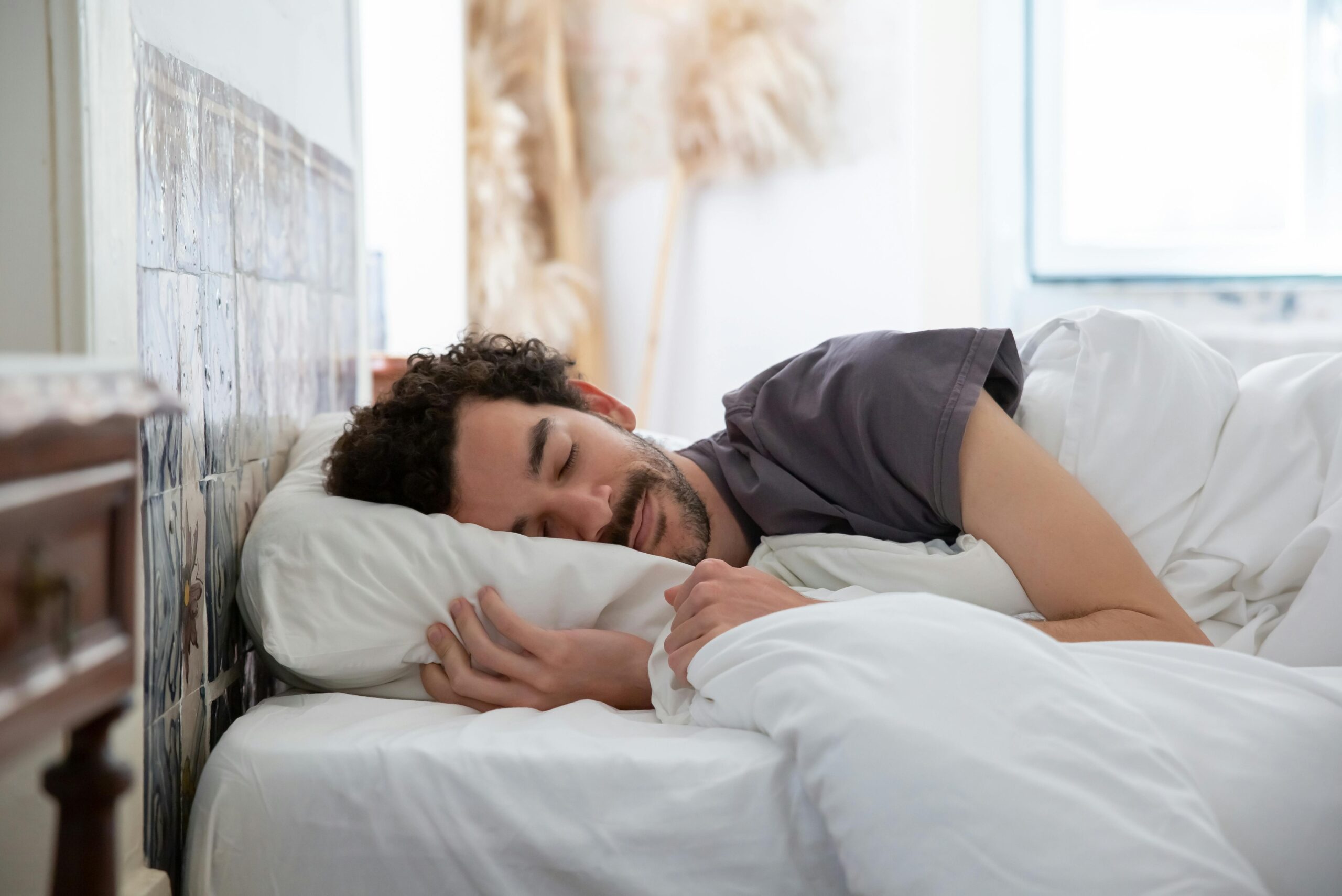Do you struggle to wake up early?
Do you hit the snooze button again and again?
Do you wish you could jump out of bed feeling fresh and ready for the day?
If yes, this guide is for you!
Waking up early can transform your life. It gives you more energy, better focus, and extra time to achieve your goals. But if you’re not a natural morning person, it can feel impossible.
The good news? Anyone can become a morning person with the right habits. This guide will walk you through science-backed steps to wake up early—without feeling exhausted.
Also Read: 10 Low-Energy Hobbies to Try Instead of Scrolling Social Media
Table of Contents
ToggleWhy Becoming a Morning Person Is Worth It
Before we dive into how to wake up early, let’s look at why it’s so beneficial:
1. Increased Productivity
Mornings are usually quiet and distraction-free, making them the perfect time to focus. Many successful people, like Elon Musk and Oprah Winfrey, wake up early to get more done.
🔗 Read more: Why Successful People Wake Up Early (Forbes)
2. Better Mental Health
Studies show that early risers tend to be happier and less stressed than night owls. Waking up early gives you time to prepare for the day, reducing morning rush and anxiety.

🔗 Source: Early Risers Have Lower Depression Risk (BBC)
3. Healthier Habits
When you wake up early, you have time for:
✔ Exercise (even a 10-minute walk helps)
✔ A proper breakfast (no skipping meals!)
✔ Meditation or journaling (great for mental clarity)
🔗 Learn: The Health Benefits of Waking Up Early (Healthline)
Also Read: Love What You Have, Before Life Teaches You to Love
How to Become a Morning Person: A Step-by-Step Guide
Step 1: Adjust Your Sleep Schedule Gradually
If you usually wake up at 9 AM, suddenly setting an alarm for 5 AM will shock your body. Instead, shift your wake-up time slowly.

How to Do It:
- Week 1: Wake up 30 minutes earlier than usual.
- Week 2: Move it another 30 minutes earlier.
- Continue until you reach your goal time.
This helps your body clock (circadian rhythm) adjust naturally.
🔗 More on this: How to Reset Your Sleep Schedule (Sleep Foundation)
Step 2: Optimize Your Bedtime Routine
A good morning starts the night before. Follow these tips for better sleep:
1. Avoid Screens Before Bed
The blue light from phones and laptops blocks melatonin (the sleep hormone).
✅ Try: Reading a book or listening to a podcast instead.
🔗 Science behind this: How Blue Light Affects Sleep (Harvard Health)

2. Keep Your Room Cool & Dark
The best temperature for sleep is around 18°C (65°F). Use blackout curtains if needed.
3. Avoid Heavy Meals & Caffeine Late at Night
Eating too late or drinking coffee after 2 PM can disrupt sleep.
🔗 Foods that help sleep: Best & Worst Foods for Sleep (NHS)
Step 3: Make Waking Up Easier
If you hate mornings, these tricks will help:
1. Use a Sunrise Alarm Clock
These clocks mimic natural sunlight, waking you up gently.
🔗 Best sunrise alarms: Top Picks (Wirecutter)

2. Drink Water First Thing
Dehydration makes you feel tired. Keep a glass of water by your bed.
3. Get Moving Immediately
Do 5 minutes of stretching or a quick walk to wake up your body.
🔗 Try these: 5-Minute Morning Stretches (YouTube)
Step 4: Build a Morning Routine You Love
If mornings feel boring or stressful, you’ll hit snooze. Instead, create a routine you enjoy.
Sample Morning Routine:
🕢 6:00 AM – Wake up, drink water
🕢 6:05 AM – Stretch or quick workout
🕢 6:20 AM – Shower & get ready
🕢 6:40 AM – Healthy breakfast
🕢 7:00 AM – Plan your day (journal or to-do list)
🔗 More ideas: The Perfect Morning Routine (Lifehack)
Step 5: Stay Consistent (Even on Weekends!)
The biggest mistake people make? Sleeping in on weekends.
If you wake at 6 AM on weekdays but sleep until 10 AM on Saturday, your body gets confused. Try to keep the same wake-up time daily.
Step 6: Practice Mindfulness and Meditation
Stress and anxiety can make it harder to fall asleep and wake up feeling refreshed. Mindfulness and meditation can help calm your mind.

- How to Start: Try a guided meditation app like Headspace or Calm.
- When to Practice: A short meditation session before bed can help you relax and sleep better.
Step 7: Reward Yourself for Waking Up on Time
Positive reinforcement can motivate you to stick to your new routine.
- Ideas for Rewards: Treat yourself to a delicious breakfast, a cup of your favorite coffee, or a few minutes of your favorite TV show.
- Track Your Progress: Use a habit tracker app like Habitica to monitor your success and reward yourself for consistency.
Step 8: Be Patient and Persistent
Changing your sleep habits takes time. Don’t get discouraged if you don’t see immediate results.
- Set Realistic Goals: Start by waking up 15 minutes earlier and gradually adjust your wake-up time.
- Celebrate Small Wins: Every day you wake up on time is a step in the right direction.
Bonus Tips for Long-Term Success
✅ Reward yourself – Enjoy a nice coffee or podcast when you wake up early.
✅ Track your progress – Use a habit tracker app like Habitica.
✅ Find an accountability partner – Wake up with a friend or join a 5 AM Club group.
🔗 Join a challenge: The 5 AM Club Challenge (Reddit)
Common Mistakes to Avoid
While trying to wake up on time, people often make these mistakes:
- Relying on Snooze: Hitting the snooze button disrupts your sleep cycle and makes you feel groggier.
- Ignoring Sleep Quality: It’s not just about the quantity of sleep but also the quality. Focus on creating a sleep-friendly environment.
- Giving Up Too Soon: Building a new habit takes time. Stick with it, even if you slip up occasionally.
Tools and Apps to Help You Wake Up on Time
Here are some tools and apps that can make waking up easier:
- Alarmy: This app forces you to complete a task (like solving a math problem) to turn off the alarm. Download Alarmy.
- SleepScore: This app tracks your sleep and provides personalized tips to improve it. Check out SleepScore.
- MyLife Meditation: A great app for guided meditations to help you relax before bed. Visit MyLife Meditation.
Final Thoughts
Becoming a morning person doesn’t happen overnight, but with small, consistent steps, you’ll start loving early mornings.
Did you find this guide helpful? Share it with someone who needs it!
Need more tips? Check out:
📖 The 5 AM Club by Robin Sharma (Great book on morning success!)
🌞 How to Wake Up Early Without Feeling Tired (WikiHow)Now, go enjoy your new morning energy! 🌅
Relevant Links:
- Sleep Cycle App
- Philips SmartSleep Wake-Up Light
- NHS Fitness Studio
- Headspace
- Calm
- Habitica
- Alarmy
- SleepScore
- MyLife Meditation
FAQs: How to Become a Morning Person
Here are answers to the most common questions about waking up early and becoming a morning person.
1. Is it really possible to become a morning person if I’m a night owl?
Yes! While genetics play a role in whether you’re naturally a night owl or early bird, your circadian rhythm can be adjusted. The key is gradual changes (like waking up 15 minutes earlier each day) and consistent habits (sleeping at the same time every night).
🔗 Learn more: Can You Change Your Chronotype? (Sleep Foundation)
2. How much sleep do I really need to wake up early?
Most adults need 7-9 hours of quality sleep. If you want to wake up at 5 AM, you should aim to sleep by 9:30-10 PM. Sacrificing sleep for early rising will backfire, making you more tired.
🔗 Check: NHS Sleep Guidelines
3. Why do I feel so groggy when I wake up early?
This is called sleep inertia—a natural feeling of drowsiness after waking. It happens because:
✔ You woke up in the wrong sleep cycle (deep sleep vs. light sleep).
✔ You’re dehydrated (drink water first thing!).
✔ You didn’t get enough REM sleep (the restorative sleep phase).
🔗 Fix it: How to Reduce Sleep Inertia (Healthline)
4. What’s the best alarm clock for waking up early?
A sunrise alarm clock (simulates natural light) or a vibrating alarm (for heavy sleepers) works best. Avoid loud, jarring alarms—they increase stress.
🔗 Best alarms: Wirecutter’s Top Picks
5. How can I stop hitting the snooze button?
✔ Place your alarm far from bed (forces you to get up).
✔ Use a puzzle alarm app (requires solving a math problem to turn off).
✔ Commit to a “no snooze” rule for 21 days (it becomes habit).
🔗 Try: Alarmy (Snooze-Busting App)
6. What should I do if I can’t fall asleep earlier?
✔ Avoid screens 1 hour before bed (blue light disrupts melatonin).
✔ Try the 4-7-8 breathing method (calms the mind).
✔ Read a book (fiction works best)—distracts from overthinking.
🔗 Sleep hack: NHS Insomnia Tips
7. Does exercise help with waking up early?
Yes! Morning exercise boosts energy and helps regulate your sleep cycle. Even 10 minutes of stretching or walking makes a difference.
🔗 Best morning workouts: 7 Quick Exercises (YouTube)
8. Should I eat breakfast right after waking up?
Not necessarily. Some people benefit from waiting 30-60 minutes (helps digestion). If you’re hungry, eat protein-rich foods (eggs, Greek yogurt) for long-lasting energy.
🔗 What to eat: Best Breakfasts for Energy (BBC Good Food)
9. How long does it take to become a morning person?
It varies, but most people adjust in 2-4 weeks if they stick to:
✔ Same bedtime & wake-up time (even weekends).
✔ Gradual adjustments (no sudden 3 AM wake-ups!).
🔗 Science: How Long to Form a Habit? (NCBI Study)
10. What if I relapse and sleep late again?
Don’t stress! One late night won’t ruin progress. Just:
✔ Get back on track the next day.
✔ Avoid napping too long (keep it under 20 minutes).
✔ Identify what caused the slip (late caffeine? stress?).
🔗 Motivation: How to Bounce Back from a Slip-Up (Psychology Today)
